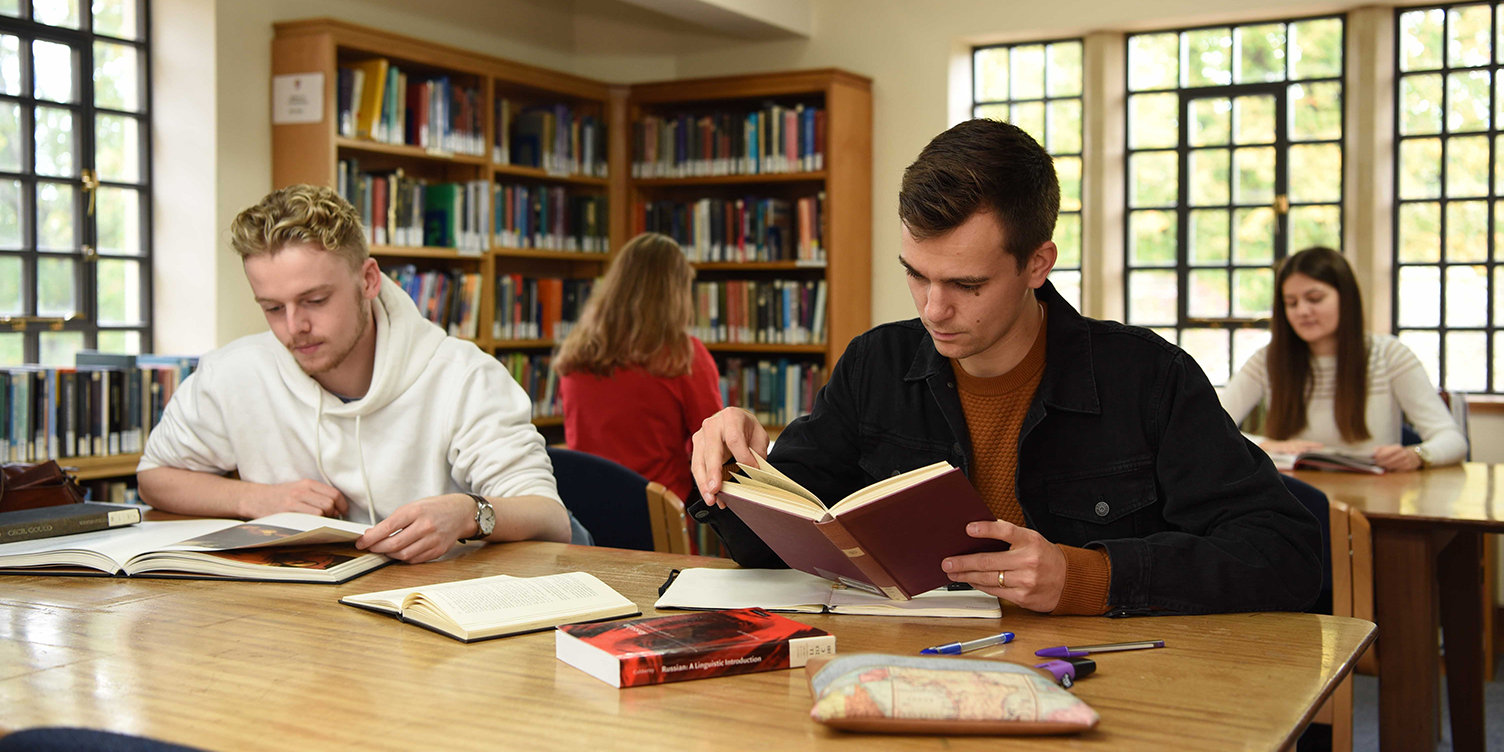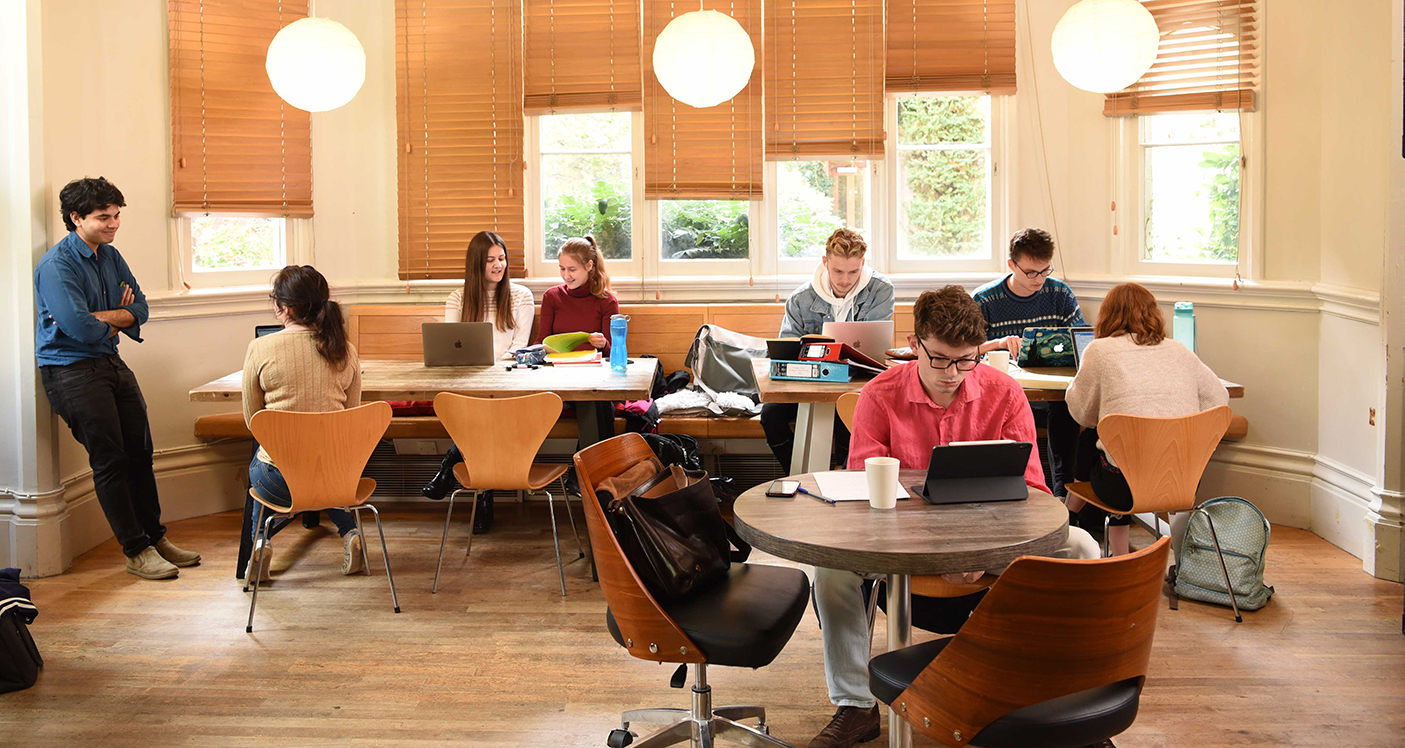Spotlight: College-Based Academic Skills Development
Trinity College's efforts to support transition to university and academic skills development in the pandemic
Like several Cambridge Colleges, Trinity offers academic skills development to students. This provision includes pre-sessional support as well as writing and study skills advice delivered through one-to-one sessions and ongoing term-time workshops. The pandemic has led us to reconsider how we support students, especially how we deliver pre-sessional provision to incoming first-year undergraduates.
Before 2020, pre-sessional academic skills support at Trinity was provided by subject. We were in the process of developing general support when the pandemic hit, shaping that support in two key ways. First, we made the most of the move online by starting the pre-sessional workshops shortly after students met their offers, rather than waiting for Freshers' Week. Second, while we had initially planned to offer pre-sessional support only to a subset of first-year students, the pandemic and resulting disrupted school year helped us to recognise that all incoming students could benefit from academic skills support, so we widened our remit. Though unique circumstances inspired these two changes, we plan to continue both practices.
Designing pre-sessional support
The purpose of the pre-sessional workshops is to help incoming students better imagine and therefore prepare for the work of the upoming year. While subject-specific support may cover content, our emphasis is on building a balanced student life and best practices for studying. We also hope to help students see that actively learning difficult material often requires failed attempts and wrong answers and, far from trying to avoid that sort of failure, students need to get comfortable with it.
This focus in Trinity's pre-sessional support is partly inspired by the College's Dean's Committee, which brings together Fellows from all disciplines to give advice and support to students who are struggling academically. This committee found that advising students on how to get the most out of supervisions and how to get comfortable with failure were some of the most effective approaches for struggling students. Sian Gardner, the Director of Tutorial and Academic Studies, envisioned the pre-sessional workshops as a way of giving all students the chance to hear this helpful advice at the beginning of their studies, rather than after a problem has already arisen.
They also grew out of the one-to-one study skills sessions with students. Often, students in these sessions were reevaluating their work practices close to exams, meaning their new work habits had little time to take root before they were assessed. By offering students a chance to reflect on their work habits at the start of their undergraduate study, we hoped they would develop more effective work practices earlier in their academic careers.

Students studying in a Trinity College library space.
The pre-sessional workshops we offered in 2020 featured students, Directors of Studies, Tutors, supervisors and staff. TWe worked closely with the Trinity College Student Union, and current students were the primary speakers at two of the four sessions: we believe that current students can speak most directly to the concerns of incoming students. These speakers were very open about challenges they faced as new students, and modelled a healthy acceptance of failure that led to learning. Another advantage of having students present in these workshops is that they implicitly model and allude to aspects of being a successful student that are not explicitly part of the workshops. Although they were not asked to discuss their enjoyment of College life and academic work, their excitement and pleasure came through in their presentations. These successful returning students showed that enjoyment is a key part of doing well at university.
The pre-sessional workshops
A brief description of each of the workshops run before the start of Michaelmas Term 2020:
Supervision Workshop
This workshop prepares students for the collaboration and risk-taking that are at the core of the most productive supervisions. In 2020, it consisted of a panel of supervisors and students from diverse disciplines, who either showed snippets of recorded supervisions or had short live supervisions during the workshop. After each example of a supervision, the participating supervisor and students gave their advice on how best to approach assignments and supervisions. The workshop gave incoming students a unique view into what might otherwise seem like an opaque type of academic instruction.
Welfare Workshop
This workshop helps students being to imagine a full life for themselves at College that includes more than academic study. In 2020, this workshop was run by the chaplain, John Summers, and consisted of a series of short videos from students discussing their involvement in extracurricular activities. Many of these videos included advice on work-life balance while being a student. Although students might construct a similar tour for themselves during the Freshers' Week societies fair, the workshop helps students understand the importance societies might play in their College lives.
Time Management
This workshop encourages students to reflect on how they managed their time in sixth-form and how the might look different at university. In 2020, rather than featuring our current students, this workshop placed incoming students in small groups to talk about their experiences. Feedback indicated that the efficacy of these groups varied, but also that students want a chance to interact with their peers as early and as often as possible. In response to that feedback, it may be necessary to hold several smaller workshops with a facilitator leading these conversations.
Ways to Study
This workshops gives incoming students several models of successful academic work processes. In 2020, it consisted of a panel of current students from a variety of disciplines. Each student described their process for completing supervision assignments, giving specifics such as where and when they worked, and how much time they spent on each part of an assignment. The audience was then given the opportunity to ask work-related questions of the panel.
Supervision 0
Each discipline supports students with reading lists and pre-term meetings and, in addition, is encouraged to hold a 'Supervision 0' before term begins. The purpose of these is to help students hit the ground running for the short Cambridge term. In 2020, students were given a short assignment and then attended a supervision to get a sense of what their academic work would look like during term time.
Looking ahead
This year, we plan to expand the pre-sessional support offered to students. We are currently collecting feedback via surveys and short interviews to determine what students found most helpful and what additional support they feel would have been beneficial. The plan for the next academic year's workshops will incorporate that feedback.

Directors of Studies have identified that approaches to group work could benefit from attention during the pre-sessional academic skills development provision.
For example, preliminary feedback from Directors of Studies has already highlighted group work as an important component of academic work that could benefit from attention during the pre-sessional provision. Some of this support will be subject-specific and consist of workshops that split time between explicit instruction about the purpose of group work and hands-on practice of the kind of group work we would like to promote. We may also emphasise group work in our Ways to Study workshop.
Final reflections
Although Trinity's pre-sessional academic skills support was first conceived as a response to students who are in acute need of help, its remit has expanded to supporting all students in their development of academic skills and its aim is to move away from seeing study skills development as a pre-university intervention and toward the understanding that students will spend their whole academic careers improving their academic skills.
Author
Dr Nyssa Wilton

Nyssa is the Academic Skills Tutor at Trinity College and the Study Skills Tutor at Peterhouse. Nyssa has a PhD in literature and rhetoric from the University of Texas, where she taught writing courses and held one-to-one writing consultations. She continues to work with UT as part of the leadership team for OnRamps, a programme whose mission is to increase diversity in higher education. Nyssa also works for CATES Tutoring, where she feels privileged to help run the American standardised test preparation for the Sutton Trust's US Programme, which helps British state school students obtain admission and funding to prestigious US universities.
Cambridge Teaching & Learning Newsletter vol. 2 (issue 3) July 2021
